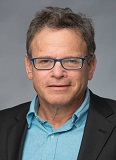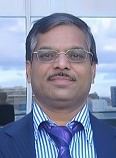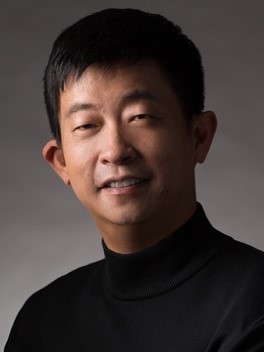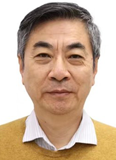
Prof. Assaf Schuster Technion - Israel Institute of Technology, Israel ACM Fellow and IEEE Fellow | Brief Introduction: Prof. Assaf Schuster of the Computer Science Department at the Technion published over 250 papers in the areas of Machine Learning, AI, Streaming Data, Big Data Systems, Parallel and Distributed Computing, Scalability. He is a Fellow of the ACM and the IEEE, and is heading MLIS, the Technion center for Machine Learning and Intelligent Systems. Speech Title:Unleashing affordablecloud resources with SpotOS Abstract: Community wisdom tells us that while the cloud early vision promised economy of scale, in practice, renting cloud resources is an expensive business. There are many reasons for this unfortunate state of affairs, some of which can be attributed to non-utilized opportunities. SpotOS is an effort which is aimed to use state of the art tools to help cloud users make better rental choices. In particular, SpotOS enables wider, easier, and better use of spot instances, which are “empty” resources sold in high discount with the pitfall that they may have to be evacuated in short notice. SpotOS can be viewed as a new kind of a distributed “operating system” which extends the OS traditional tasks by optimizing task allocation to resources, optimizing batch resource rental from the provider, and supporting failover mechanisms. To achieve these goals SpotOS uses advanced modern tools such as optimization algorithms, predictive machine learning, efficient external storage, and stateful task management in distributed environments. The talk will survey the challenges and opportunities in SpotOS. |
Prof. Rajkumar Buyya University of Melbourne, Australia IEEE Fellow | Brief Introduction: Dr. Rajkumar Buyya is a Redmond Barry Distinguished Professor and Director of the Cloud Computing and Distributed Systems (CLOUDS) Laboratory at the University of Melbourne, Australia. He is also serving as the founding CEO of Manjrasoft, a spin-off company of the University, commercializing its innovations in Cloud Computing. He has authored over 850 publications and seven textbooks including "Mastering Cloud Computing" published by McGraw Hill, China Machine Press, and Morgan Kaufmann for Indian, Chinese and international markets respectively. Dr. Buyya is one of the highly cited authors in computer science and software engineering worldwide (h-index=155, g-index=340, and 125,600+ citations). Dr. Buyya is recognised as Web of Science “Highly Cited Researcher” for six consecutive years since 2016, IEEE Fellow, and Scopus Researcher of the Year 2017 with Excellence in Innovative Research Award by Elsevier. He has been recognised as the "Best of the World" twice for research fields (in Computing Systems in 2019 and Software Systems in 2021) as well as "Lifetime Achiever" and "Superstar of Research" in "Engineering and Computer Science" discipline twice (2019 and 2021) by the Australian Research Review. Recently, he received "Research Innovation Award" from IEEE Technical Committee on Services Computing and "Research Impact Award" from IEEE Technical Committee on Cloud Computing. Software technologies for Grid, Cloud, and Fog computing developed under Dr.Buyya's leadership have gained rapid acceptance and are in use at several academic institutions and commercial enterprises in 50+ countries around the world. Manjrasoft's Aneka Cloud technology developed under his leadership has received "Frost New Product Innovation Award". He served as founding Editor-in-Chief of the IEEE Transactions on Cloud Computing. He is currently serving as Editor-in-Chief of Software: Practice and Experience, a long-standing journal in the field established 50+ years ago. For further information on Dr.Buyya, please visit his cyberhome: www.buyya.com |
Prof. Zhu Han John and Rebecca Moores Professor ECE Department and CS Department, University of Houston, USA IEEE Fellow,AAAS Fellow | Brief Introduction: Zhu Han received the B.S. degree in electronic engineering from Tsinghua University, in 1997, and the M.S. and Ph.D. degrees in electrical and computer engineering from the University of Maryland, College Park, in 1999 and 2003, respectively. From 2000 to 2002, he was an R&D Engineer of JDSU, Germantown, Maryland. From 2003 to 2006, he was a Research Associate at the University of Maryland. From 2006 to 2008, he was an assistant professor at Boise State University, Idaho. Currently, he is a John and Rebecca Moores Professor in the Electrical and Computer Engineering Department as well as the Computer Science Department at the University of Houston, Texas. Dr. Han is an NSF CAREER award recipient of 2010, and the winner of the 2021 IEEE Kiyo Tomiyasu Award. He has been an IEEE fellow since 2014, an AAAS fellow since 2020, an IEEE Distinguished Lecturer from 2015 to 2018, and an ACM Distinguished Speaker from 2022-2025. Dr. Han is also a 1% highly cited researcher since 2017. Speech Title: Mean FieldGames Guided Machine Learning in Distributed Systems Abstract: Mean field games(MFGs) deal with the study and analysis of differential games (DGs) with a large number of indistinguishable, rational, and heterogeneous players. These methodologies approximate the Nash equilibriums for DGs with symmetric interactions among players. In contrast with classical game theory, where players need to react to every other player separately, MFGs simplify the game by modeling the interaction of a representative player with the collective behavior of the other players. In this talk, we first discuss the basic concepts behind MFGs as well as their difference with classical game theory techniques. Then, we will introduce how MFG can be connected with Artificial Intelligence (AI). Specifically, we will connect MFGs with several popular AI techniques, such as evolutionary neural architecture search with MFG selection mechanism, joint server-selection and handover design for satellite-based federated learning using mean-field evolutionary approach, MFG guided deep reinforcement learning for task placement in cooperative multi-access edge computing. Finally, we conclude with the contributions and advantages that MFG can bring to AI. |
Prof. Jianguo Ma Zhejiang Lab, China IEEE Fellow | Biography: Jianguo Ma received the doctoral degree in engineering in 1996 from Duisburg University, Duisburg, Germany. He was a faculty member of Nanyang Technological University (NTU) of Singapore from Sept 1997 to Dec. 2005 after his post-doctoral fellowship with Dalhousie University of Canada in Apr 1996 – Sept 1997. He was with the University of Electronic Science and Technology of China in Jan 2006 – Oct 2009 and he served as the Dean for the School of Electronic Information Engineering and the founding director of the Qingdao Institute of Oceanic Engineering of Tianjin University in Oct. 2009 – Aug 2016; he joined Guangdong University of Technology as a distinguished professor in Sept 2016 – Aug 2021. Dr. Ma served as the Vice Dean for the School of Micro-Nano Electronics of Zhejiang University in Sept, 2021 – Oct 2022, Starting from 1 Nov 2022 he joins the Zhejiang Lab. His research interests are: Microwave Electronics; RFIC Applications to Wireless Infrastructures; Microwave and THz Microelectronic Systems; He served as the Associate Editor for IEEE Microwave and Wireless Components Letters in 2003 –2005; He was the member for IEEE University Program ad hoc Committee (2011~2013). Dr. Ma was the Member of the Editorial Board for Proceedings of IEEE in 2013-2018 He is Fellow of IEEE for the Leadership in Microwave Electronics and RFICs Applications Dr. Ma was serving as the Editor-in-Chief of IEEE Transactions on Microwave Theory and Techniques in 2020 –2022. |



